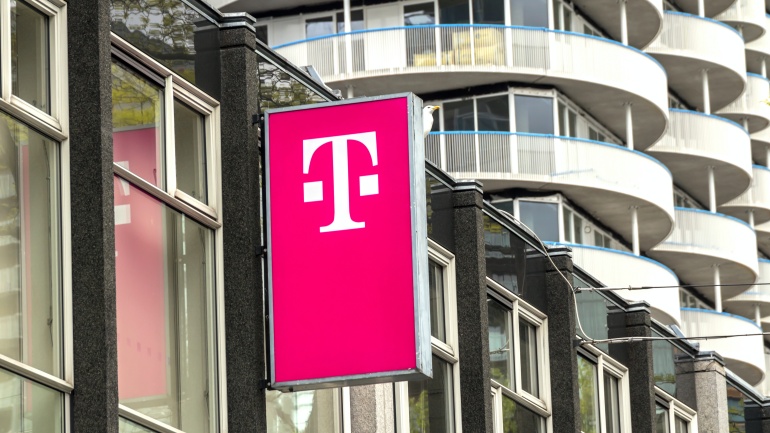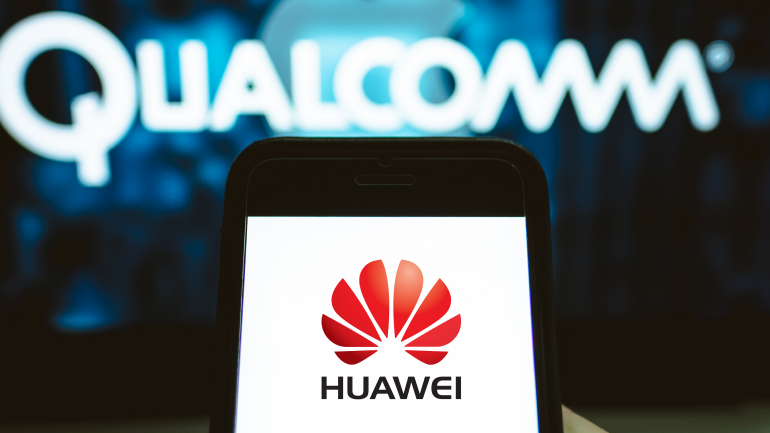The race for 5G dominance in the US continues, with AT&T focusing on standalone 5G architecture and monetizing services like gaming and augmented reality. With a cautious approach to Fixed Wireless Access, AT&T targets legacy copper network customers while embracing sustainability, AI, and automation for better energy efficiency and environmental impact.
Three UK experiences 5% revenue increase in Q1, but CEO Robert Finnegan calls for market structural change to boost returns. High 5G rollout costs challenge the industry, while a potential merger with Vodafone looms on the horizon.
T-Mobile US has begun offering commercial Voice-over-5G (also known as Voice over New Radio, or VoNR) in certain regions of Portland, Oregon, and Salt Lake City, Utah, with the intention of expanding the service to a larger area later this year. VoNR, which is based on 5G Standalone (5G SA) network technology, is now available on the Samsung Galaxy S21 5G smartphone and will be available later this year on a variety of additional 5G handsets, including the Galaxy S22. Voice over 5G represents a significant hurdle for the whole wireless industry, however all US providers will most certainly want to transition voice calling to 5G at some point in the future to free up LTE spectrum for 5G. Voice conversations via 5G offer decreased latency, lightning-fast speeds, real-time response and immense connectivity. Ericsson, Nokia, Samsung and Qualcomm all contributed to TMUS’s voice over 5G service debut.…
Oracle Communications has been chosen by Vodafone UK to lead the network policy for its standalone 5G network. Vodafone will be able to make more intelligent policy decisions and swiftly test and deploy new services using Oracle’s cloud native network policy management technology as part of its 5G core. Customers will be able to get their hands on exciting new 5G options sooner, thanks to this new agreement, which includes holographic calls, lag-free 5G game streaming and film downloads up to 4X faster than 4G networks. The solution, which is comprised of Oracle’s 5G Core Policy Control Function (PCF) and Policy and Charging Rules Function (PCRF), enables the implementation of sophisticated network policies across wireless, fixed and cable networks, as well as IoT and machine-to-machine (M2M) networks. In the case of Vodafone, the solution will provide data from which Vodafone customers may select the optimal network offer…
Swedish vendor Ericsson has signed an agreement to provide a 5G “core” to Virgin Media O2, a new company established by a merger between Virgin Media and the mobile operator O2. Ericsson will build a VMO2 standalone 5G core, that will incorporate 4G and non-standalone 5G cores, to create dual-mode 5G core, as referred to by Ericsson. The vendor has been a supplier to mobile operator O2 UK for quite some time now. The previous deal between the two companies focused on an ongoing “network modernization program” that was introduced in June 2020. Since the older core used by O2 was also that of Ericsson, it was appropriate to continue with the same technology vendor. Moreover, the new agreement also allows Virgin Media O2 to provide a standalone 5G service. UK operators have based their 5G launches on a “non-standalone” architecture that allows the 5G RAN to revert…
Ericsson has announced the launch of its Private 5G, which will reshape on-site connectivity by providing secure and simple 4G LTE and 5G Standalone Connectivity (SA), targeting the manufacturing, mining and process industries, offshore and power companies, as well as ports and airports. Ericsson Private 5G enhances and makes business operations using cloud network management easier, keeping sensitive data on-site without downtime, and guarantees high performance under Service-Level Agreements (SLAs). The Ericsson 5G Private network is based on a 4G/5G radio and dual-mode core technology for extensive indoor and outdoor environment use cases, that include tracking assets and real-time automation, a digital twin to help optimize production operations, effective quality checks using augmented reality, and smart surveillance drones. This technology seamlessly merges with a variety of business projects, devices, and applications to increase productivity, deliver new offerings, boost customer engagement, and improve the overall work environment. The…
Deutsche Telekom (DT), in collaboration with its partners Ericsson, Nokia, Qualcomm, Samsung and Xiaomi, has announced the accomplishment of the world’s first ever Voice over 5G New Radio (VoNR) call in an end-to-end multi-vendor environment. During an innovation test in Warsaw, Poland, the partners tested the capabilities of a 5G Standalone (SA) network with voice and 5G data sessions in parallel. The network setup integrated the Ericsson 5G Core and Nokia’s IP Multimedia Subsystem (IMS). Calls were terminated on commercial terminals from the Samsung Galaxy S21 5G, Xiaomi Mi 11 Lite 5G and 5G smartphone form factor tester supplied by Qualcomm’s Snapdragon 780G and 888 5G mobile platforms with Snapdragon 5G Modem-RF Systems. By taking advantage of cloud-native 5G SA networks, operators will be able to provide high-quality voice services without relying on LTE as an anchor. Because of the high transmission quality of 5G technology, VoNR incorporation…
The American mobile chip making giant, Qualcomm, is trying to persuade the US government to allow them to sell its chips to Huawei for their 5G smartphones. According to reports, Qualcomm selling its 5G chips to the Chinese multinational technology company might end up helping American business. The US trade ban on Huawei has severely affected the manufacturer’s inventories. When the US increased sanctions against Huawei in May, it was immediately clear that it would be a huge blow to the Chinese seller, as the company would no longer be able to use components from US suppliers. In fact, the impact of sanctions quickly proved to be as expected. Just last week, Huawei announced that its latest flagship smartphone, Huawei Mate 40, would be the last model to use high-end Kirin processors manufactured by its subsidiary HiSilicon. The US trade ban on Huawei will not prevent the…
The investment required to upgrade a network to support standalone 5G technology is important. JP Morgan think this is the reason why Telecom companies stocks did not do so well last year. There is a serious concern that the investment might not be as effective as expected. The lack of return put an important shade on some valuation for some asian (China, Japan and South Korea) and Australian telecommunications stocks. Those worries could be explained as the daily applications and advantages of 5G technology are yet to be seen and to be invented. James Sullivan,head of Asia ex-Japan equity research at J.P. Morgan explained “It’s not really about faster download speeds,” he said. “It’s about internet of things, autonomous vehicles and things of that nature for which no one understands a monetization case for networks yet.” 5G will not only be customer centered but also will help companies in processing…
Ericsson and Telefónica Germany have announced the extension of their core network partnership. This collaboration, involving Ericsson’s dual-mode 5G Core and cloud infrastructure solutions, currently supports mobile connectivity for 45 million O2 Telefónica subscribers. It spans multiple network generations including 5G Standalone (SA), 5G non-Standalone (NSA), 4G, and 2G.













